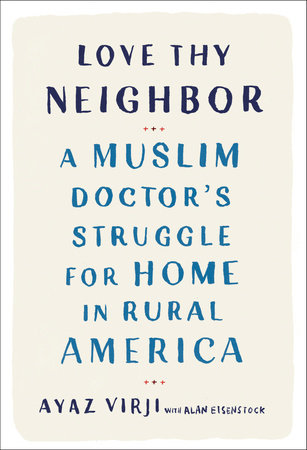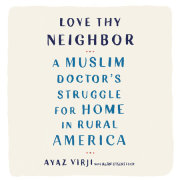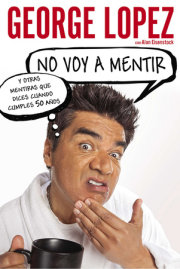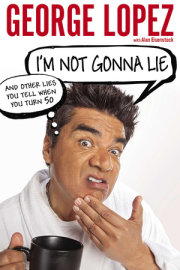TOUGH QUESTIONS
2017.
A bitterly cold day in February.
I sit in the front row of the school auditorium as my friend Mandy France walks to the podium, tall, purposeful, the swell of her auburn hair flapping onto the shoulders of her pink blouse. My throat stings, on fire all day from a case of laryngitis. I cross and uncross my legs. I’m not nervous, exactly. Rather I feel jumpy, overeager, like a sprinter coiled in the starting blocks.
“Good evening,” Mandy says to the audience.
Those two simple words calm me. Mandy has a way. A gift. Whenever I spend time with her, I feel bathed in warmth, softened by her humor. Her subtle spiritual power washes over and then lifts me. Especially lately.
“We’re going to go ahead and get started,” she says, the timbre of her voice sending out a signal.
Get ready. You need to hear this.On this chilly Thursday night in March, four hundred people—more than 25 percent of our town’s population—have come to the school auditorium in Dawson, Minnesota, to hear a Muslim doctor speak about his faith. The doctor intends to tell the truth and enlighten people about Islam, a religion that has been repeatedly maligned and misrepresented in the media.
I am that doctor. I am that Muslim.
Mandy holds for a slow two count and says, “I’d like to welcome you tonight to our presentation entitled ‘Love Thy Neighbor.’ For those of you who don’t know me, I’m Mandy France, the current intern at Grace Lutheran here in Dawson. I am a fourth-year seminary student at Luther Seminary in St. Paul. I’ll be graduating in May of this year with my master’s of divinity degree and then going on towards ordination in the Evangelical Lutheran Church of America.”
Translation:
I am a Christian.Her credentials. Her passport. And in the town of Dawson—a rural community of fifteen hundred souls that nonetheless manages to keep five churches running—street cred. For a split second, I remember the night Mandy sat at our dining room table, telling a story that caused my wife, Musarrat, and me to laugh out loud. Some people from another church in town saw a yoga mat in Mandy’s office and accused her of doing Islamic prayers in secret.
“As you all know, the rhetoric right now in our world surrounding the Muslim community is not the greatest,” Mandy says. “It is hurtful, and the way the media has portrayed this community is harmful and it is wrong. That rhetoric has led to a lot of fear, something that is known as Islamophobia. For my internship project I decided to examine what it means to truly follow Jesus Christ’s command to love thy neighbor.”
Mandy turns to Musarrat and me and beams a conta- gious smile. My smile widens, mirroring hers.
She swivels away, looks straight ahead. Her forehead creases, and I catch a sudden look of determination.
“I knew Dr. Virji from the clinic and had visited him a few times, actually as my doctor. I knew his family was the only Muslim family living in this community, and I approached them and asked if they would share with me and the community about their faith.”
She leans forward and speaks with insistence.
“They easily—
easily—could have said no, but they graciously said yes and invited me into their home with- out hesitation. They both work full-time jobs. They have three amazing children and took time out of their sched- ules to sit with me and educate me and answer my questions about their faith and talk about their experience being Muslim in America post 9/11.”
Mandy shakes her head slightly. “These are people who are full of such grace, such dignity, and such acceptance of all people. To know this family is to know peace, and I can tell you that as a Christian person, I have learned more from them about what it means to follow the command ‘Love thy neighbor’ than I have from many Christians I have encountered in my life. I am honored to call them my friends and to call them my neighbors as well.”
She takes a small step back to allow the words to sink in.
“Tonight, at this forum, we will have the opportunity at the end to engage in an open question and answer session. It is encouraged that you ask Dr. Virji those tough questions you have about the Islamic faith, the questions that you have about how the media portrays this faith, the questions you have wrestled with, the questions you might not otherwise ask. This is your chance to hear the truth from somebody who actually practices the faith.”
I glance down at the outline I will use to deliver my speech, the eleven typed pages crinkling in my hands.
Ask Dr. Virji those tough questions.
Questions you have wrestled with. Questions you might not otherwise ask.
Three years ago, when we moved to Dawson, and up until the election of Donald Trump, Musarrat and I never knew that our neighbors even
had tough questions about us, questions they might be afraid to ask. We felt only acceptance and welcome. Since then I’ve wondered if those questions always existed and the election only brought them to the forefront.
I remember the first time we visited Dawson. We walked through the hospital where I would serve as chief of staff and head of the medical clinic. We toured the school our kids would attend. We strolled down the quaint main street, taking in the post office, barber shop, Wanda’s Diner, the two-lane bowling alley, pharmacy, grocery store, the well-appointed library. Behind the main street, we saw an incongruous cluster of Victorian homes and approached the town park, where a quirky arrangement of garden gnome statues greeted us: Dawson’s claim to fame, at least locally. Finally, most memorable of all, we met several warm, welcoming, down-to-earth people. Musarrat and I felt that we had found
home.
“It’s like a fairy tale,” Musarrat, who wears a hijab, said. “No one stared at me.”
But after Trump carried the county with close to 65 percent of the vote and Mandy begin hearing from church members that people had questions—and concerns—about us, Musarrat said, “I knew there was something underlying. It was too good to be true.”
I love Dawson. I love the small-town manners, the intimacy, the proximity of everything. I often walk to work, a welcome change from sitting in traffic on the way to every other job I’ve had. Our neighbors look out for us, drop in to say hi, shovel our sidewalk in the winter. We never lock our doors. We wouldn’t think of it.
Dawson, too, was the place where my career became my calling. I left a high-end medical center in a midsize city because it practiced “turnstile medicine”:
Move them in and out as fast you can. My position paid well, but that didn’t matter. I felt frustrated and unfulfilled. In fact, I felt worse than that. I felt as if I weren’t doing what I had been trained to do, what I was
supposed to do: provide attentive and complete medical care to people who would become my patients and stay my patients for a long period of time, maybe even their entire lives. Because I was on a clock, forced to attend to a certain number of patients per day, I found myself focusing only on Mr. Smith’s chest pain and not on Mr. Smith. In order to practice what I call “dignified medicine,” I would have to move.
Rural America was—and is—experiencing a severe doctor shortage. The latest statistics reveal a ratio of one doctor to 256 patients in cities compared with one doctor per 1,900 patients in rural America. So I convinced Musarrat to leave urban Pennsylvania, where we lived close to her family, and relocate to tiny Dawson, Minnesota, in farm country, at the far western tip of the state. As with any move, we experienced a period of adjustment and culture shock—we were the only Muslims in town—but by the end of the first year, we’d settled in. The kids found their stride in their new school. I hit the ground running at the hospital, adding six new service lines, upgrading the equipment, and helping oversee a multimillion-dollar hospital remodel and expansion. Musarrat opened what would soon become an in-demand skin care salon in the center of town. Clients came to her from all over, some from neighboring towns and others from as far as Minneapolis, three hours away.
Then—three years later—came the 2016 presidential election.
Reality hit us abruptly, harshly.
Our government turned cold, referring to Islam as a cancer and suggesting that Muslims be put on a registry.
Anti-Muslim sentiment and hate speech blew across the country like a wildfire.
Even in Dawson. Our family’s home.
The day after the election I exploded with anger. I wanted to leave. To flee. To escape.
Then—soul-searching.
A calming. A call for justice. For explanation. For
truth. Resulting in this talk.
This necessary talk.
Mandy booked the Dawson-Boyd High School auditorium and put up flyers around town, announcing tonight’s event. She used innocuous language, calling the talk simply “Love Thy Neighbor.” The flyers explained that I would be speaking about my faith, about Islam.
Almost immediately, the phone calls started coming.
Copyright © 2019 by Ayaz Virji with Alan Eisenstock. All rights reserved. No part of this excerpt may be reproduced or reprinted without permission in writing from the publisher.







